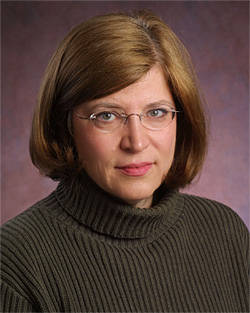- Medical Matters
Update on Exercise and Fertility: You May Be Surprised
by Mary Davenport, MD, MS
Women wanting to get pregnant are subject to contradictory advice from family, friends, and health professionals. Exercise is an especially confusing subject for many. Those having trouble conceiving sometimes confess feeling guilty about not going to the gym or inadequate physical fitness. We know that exercise is correlated with good cardiovascular health, better brain function, longevity and many other health benefits. But how much is really known about exercise and fertility? Until recently there was not much good research, especially for women who were not patients in fertility clinics.
We have long known about “runner’s amenorrhea,” a condition in which elite athletes stop having periods. This can be due to insufficient body fat, which is necessary for the production of estrogen; very thin non-athletes also can have this problem. And older studies have shown that more than five hours per week of strenuous exercise disrupts cycles of women undergoing IVF treatment. But what about ordinary recreational exercise? There has been a big increase in women’s athleticism and exercise in the past few decades, affecting millions of people.
An excellent, large study of 3628 Danish women, age 18-40 who were planning pregnancy were studied by Lauren Wise and her colleagues. The article, “A prospective cohort study of physical activity and time to pregnancy” in the journal Fertility and Sterility seemed to answer a number of questions about the relationship to exercise to fertility in an accurate and thorough way. The purpose of the study was to measure fecundability, or time to conception. Women being treated for infertility were excluded. The subjects were categorized as to age, partner’s age, tobacco and alcohol use, and regularity of cycles.
The women also were categorized by Body Mass Index, BMI, which is an indicator of obesity. BMI correlates height and weight. Calculators or tables (easily available on line) convert a person’s height and weight into kilograms and meters, and will then express BMI as kg/m2. A BMI of30 obese. The women in the study also were questioned as to the frequency (hours per week) and type of exercise. Vigorous exercise included running, aerobics, fast cycling, gymnastics, and swimming. Moderate exercise included activities such as walking, gardening, golfing and yoga. The women were then followed with periodic questionnaires for 12 months until conception; if more than 12 months elapsed the subjects would meet the standard definition of infertility.
The results were very interesting. It was not at all surprising that women with BMI of under 18.5 took longer to conceive, and had more irregular cycles. It also was unremarkable that women with more than five hours of vigorous exercise a week took longer to conceive. But the big surprise occurred after the thinnest women with a BMI less than 18.5, were omitted from the study. Vigorous exercise seemed to have a detrimental effect on the fertility of normal weight women – those with a BMI of 19-24. This was not only true for those exercising five hours or more a week. For every hour of vigorous exercise weekly it took longer to conceive. If you look up the charts of the study on-line you will see a typical “dose response curve” showing bigger drops in fecundability with more hours of exercise. Even one hour a week of vigorous exercise caused women with normal body weight to take a longer time to conceive.
However, the study also showed that moderate exercise decreased the time to conceive for all categories of women – all ages and weights. Being sedentary, with no exercise, also reduced fertility for all categories of women. And women in the overweight and obese category did just as well with vigorous exercise as moderate exercise. When we analyze why exercise could have these effects, it seems to relate to the well-known effect of stress impairing the reproductive cycle. Vigorous exercise, just like stress, will increase cortisol and its precursor hormones, which can in turn impair development of the egg and follicle, and levels of progesterone and estrogen. However, a counterbalancing effect for heavier women is the beneficial effect of exercise on insulin resistance and blood sugar. Overweight women often have impaired insulin resistance and blood sugar, with a detrimental effect on ovulation and progesterone levels. And exercise of any kind, even fifteen minutes walking daily, is a big help in stabilizing insulin resistance. So we can see that not one size fits all, and exercise should be tailored to the individual woman’s situation.
The most important recommendation as a result of this study is that normal weight women wanting to conceive should replace vigorous exercise with moderate exercise, and that for overweight or obese women, any kind of exercise is helpful. When this study came out in 2012, it caused shock waves in the fertility community because many women and health providers had believed that vigorous exercise helped almost everyone conceive. A number of my fertility patients who prided themselves on their level of fitness had real trouble changing their exercise routines! This advice seems to harken back a bit to our grandmothers’ time when women having fertility problems were told to “just relax.” But this is the best science out there on exercise and fertility thus far. This excellent article can be found online at http://www.fertstert.org/article/S0015-0282(12)00259-2/fulltext
About The Author


